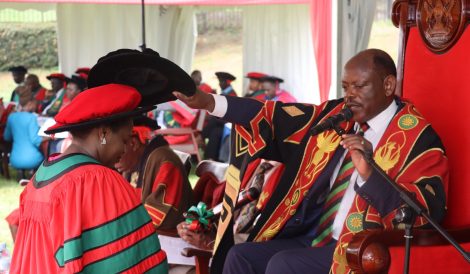71 Graduate Under India–Uganda e-VBAB & Amity University Collaboration
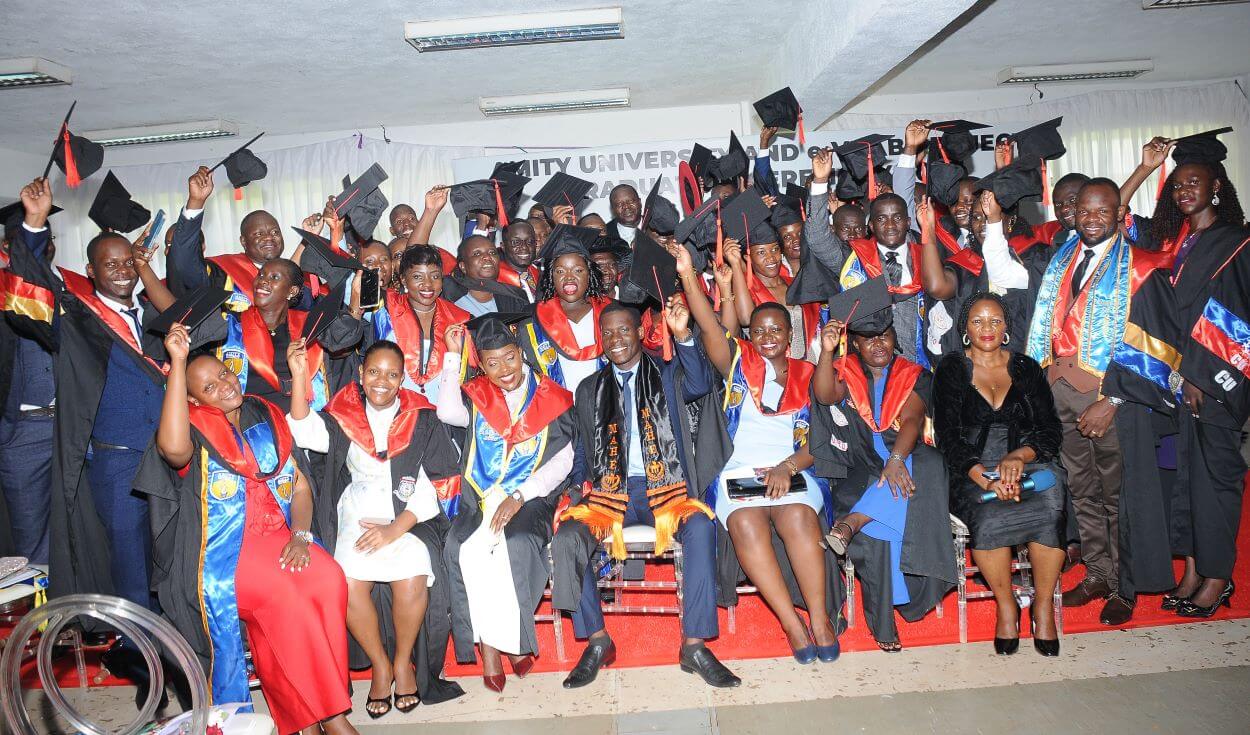
Kampala, Uganda
21st November 2025
Makerere University’s College of Computing and Information Sciences (CoCIS) has graduated 71 students under Phase 2 of the e-VBAB Project, a collaboration between Amity University in India and Makerere University. The ceremony, held at Block B CoCIS, was presided over by Principal Prof. Tonny Oyana on behalf of the Vice Chancellor.
The program, funded by the Government of India, offered 100 percent scholarships to Ugandan students through the Pan-African e-Network Project, which provides tele-education and tele-medicine services across 48 African countries. Uganda signed onto the initiative in 2019, and more than 1,700 Ugandan students have benefited since its inception.
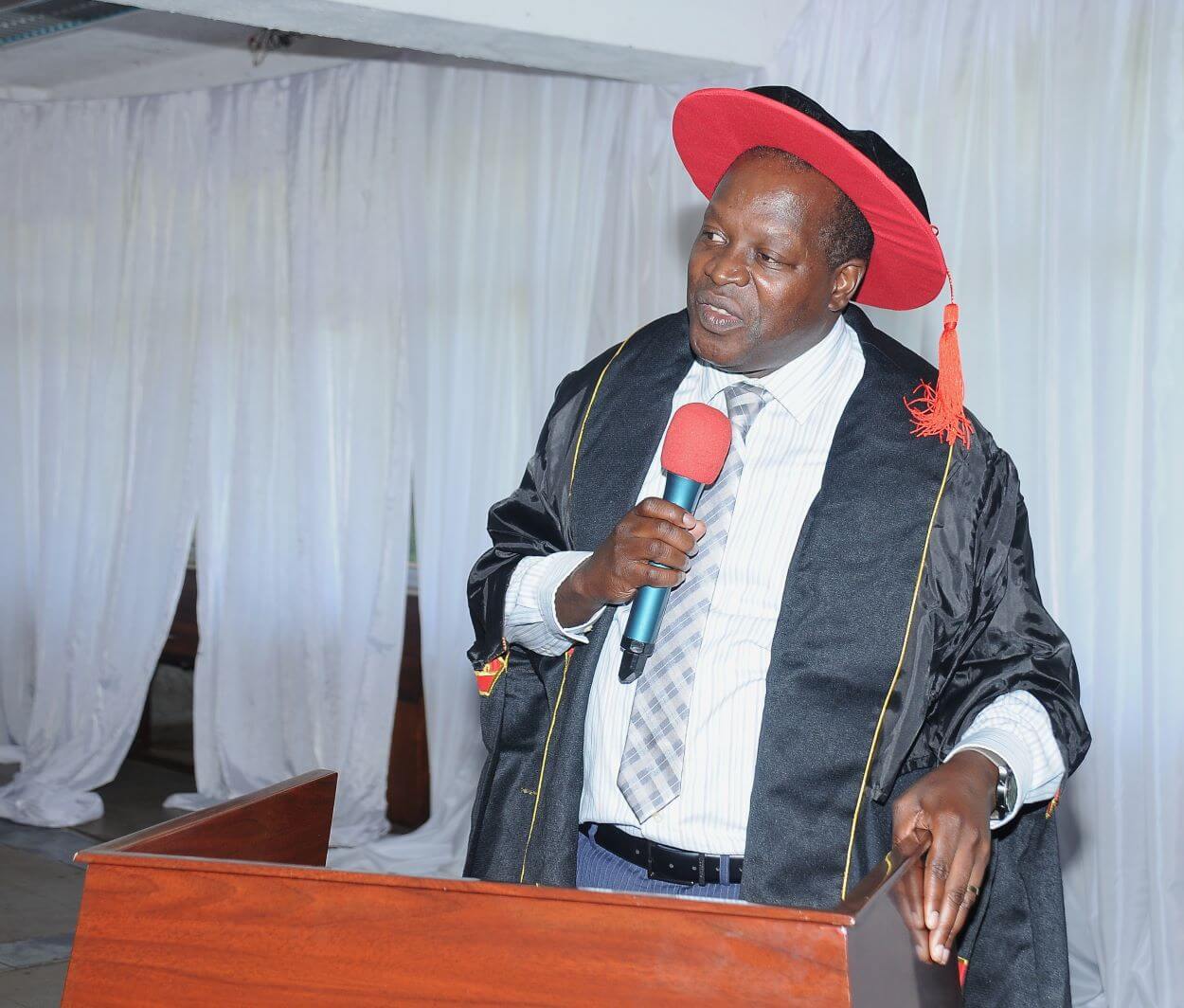
Prof. Tonny Oyana addressing graduands
In his remarks, Prof. Oyana praised the efforts of program coordinators and support staff, singling out Madam Claire for her dedication. “Coordinating things remotely from other countries is not easy, but you have been humble enough to ensure that these graduates have seen the light,” he said. He also thanked custodians and security personnel who facilitated exams and weekend access for students.
Prof. Oyana emphasized the importance of completing studies, noting that many students remain pending. “Please encourage your friends because there’s no reason not to finish. You honor us, honor the government of India, the taxpayers, by completing,” he urged. He reminded graduates that their degrees are recognized by Uganda’s National Council for Higher Education and warned against fraudulent claims. “Only hard-earned degrees are recognized. There’s no easy way out,” he cautioned.
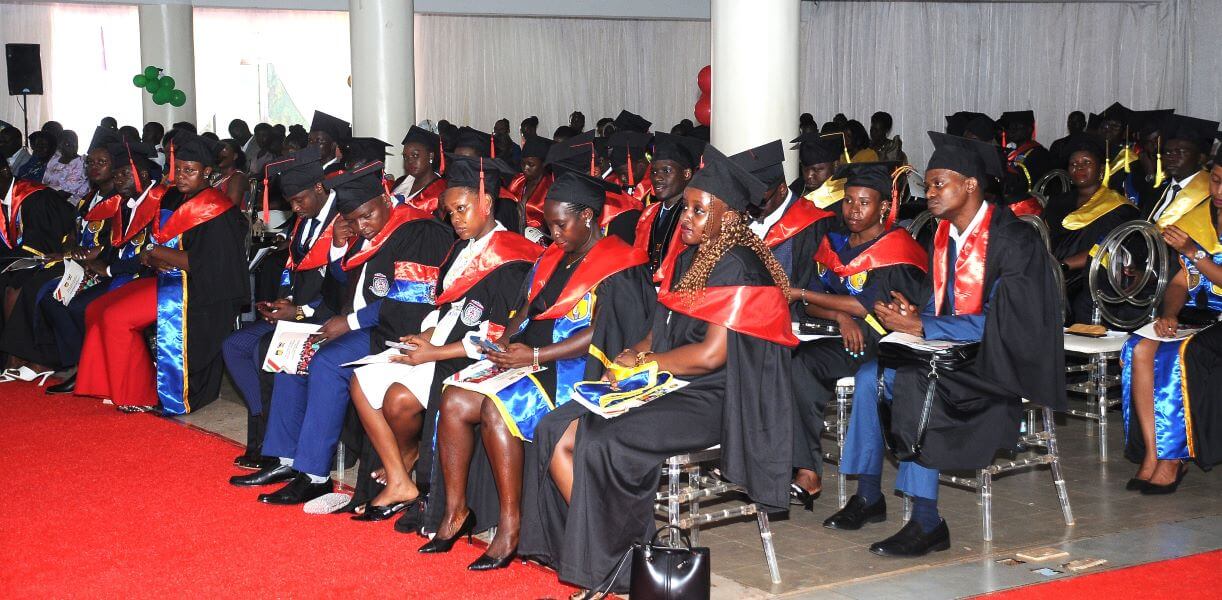
Reflecting on the program’s history, Oyana described the graduates as “COVID children” who persevered through the pandemic. He also offered career advice, stressing humility, confidence, and attitude. “Having a good attitude does not cost money. It is free. And it’s good for your heart. Happiness is not sold anywhere,” he said. He encouraged graduates to create opportunities through entrepreneurship and to value professional networks.
The graduation marked the conclusion of the e-VBAB collaboration, with Prof. Oyana reminding students of their unique place in history as the first and only cohort under the Makerere–Amity partnership. “You are the first cohort. Everybody looks upon you wondering, will you make it? History will write down that we are the only cohort,” he said.
Prof. Oyana Urges Graduates to Pursue Gifts, Confidence and Positive Attitudes
Prof. Tonny Oyana urged graduates to embrace humility, confidence, and entrepreneurship as they prepare for life beyond academia, warning that degrees alone are not a guarantee of success.
Oyana reflected on his career in academia. “But I’m still here, surviving and kicking. I have been with academia technically from 1993. I have not changed career. I grew my career through academia,” he said, noting that while psychology suggests people change careers five times, he has remained committed to one path.
He cautioned against unrealistic ambitions, particularly in politics, referencing Uganda’s crowded presidential race. “Not everybody can be president. So exercise your dreams with some caution. Don’t waste your time in an initiative that you know will not break through,” he advised, urging graduates to instead pursue areas aligned with their spiritual gifts and natural talents.
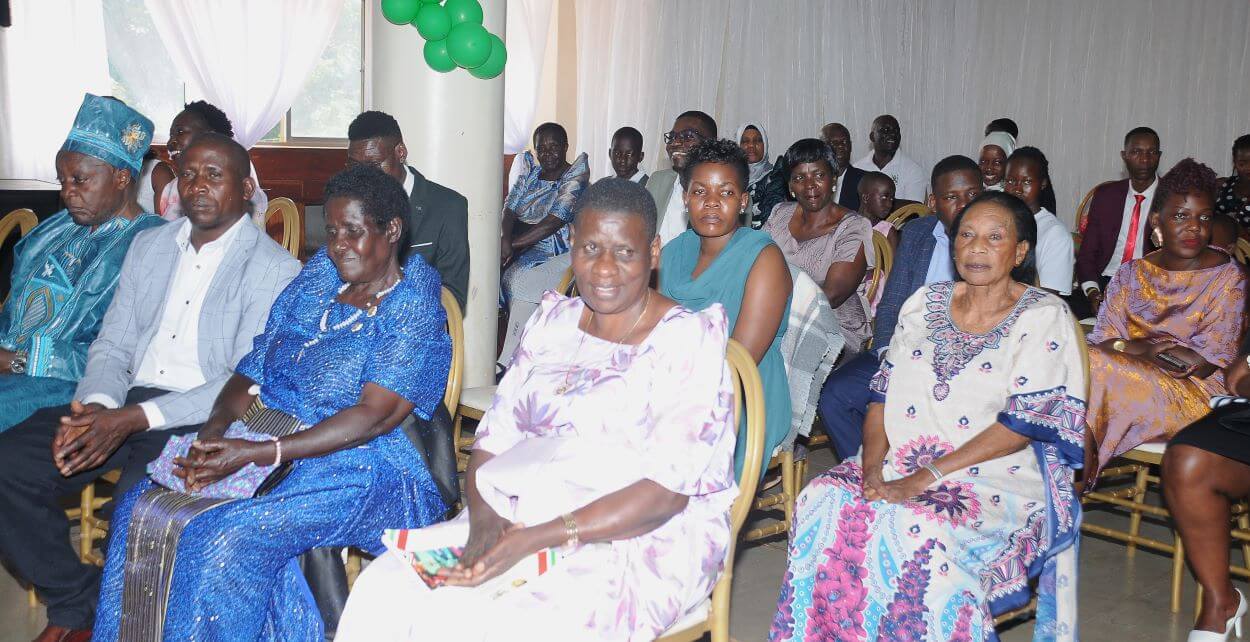
Turning to the job market, Prof. Oyana highlighted the challenges of employment. “In order to get a faculty job, you had to put in 40 applications. Now, I think it has doubled. These days, there’s no courtesy. They don’t even reply to your application,” he said. He encouraged graduates to create their own opportunities through entrepreneurship, stressing that education provides knowledge, skills, and values.
He underscored the importance of attitude, describing it as a free but powerful tool. “Having a good attitude does not cost money. It is free. And it’s good for your heart. Happiness is not sold anywhere. So, you make your attitude positive, things will be positive,” he said. He warned that arrogance and poor manners can sabotage success, urging students to practice humility both in professional and personal life.
Prof. Oyana also emphasized confidence and self-presentation. “You are your own moving advert. Don’t sabotage your own confidence. Be very clear about what you bring to the table,” he said, advising graduates to rehearse their self-introductions and prepare thoroughly for interviews.
Finally, he highlighted the value of professional networks, recalling how his PhD cohort became a lifelong support system. “It became my network for success. Please keep your network. Even if you haven’t gotten much in your life, face it,” he said.
The Principal’s remarks blended personal anecdotes with practical advice, reinforcing the message that success requires humility, preparation, resilience and strong networks beyond academic achievement.
CiPSD Director Nalubega Praises Teamwork, Urges Graduates to Believe in Themselves
The Director of the Center for Innovations and Professional Skills Development (CiPSD), Ms. Barbara Nalubega, praised graduates and staff for their teamwork and resilience .
Addressing the graduates, Nalubega said the success of the program was achieved despite challenges. “I’m very humbled that amidst all the same challenges, we have built rapport, worked as a team, and here we are. This is the day that the Lord has made,” she remarked.
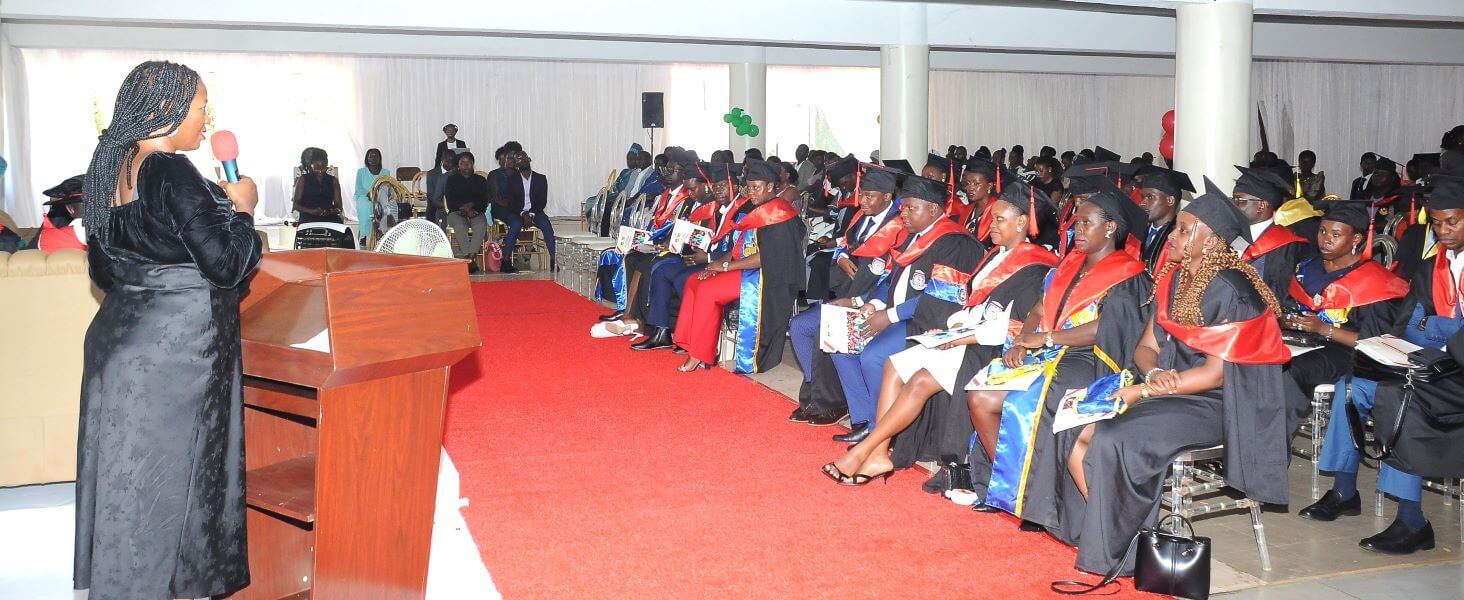
She thanked graduates for their encouragement and support, noting that she had received hundreds of messages of gratitude during the course of the program. She singled out several students, including Damali, Fatuma, Josh, Sam, Paula, Sheila, and Michael, for their commitment, and extended special appreciation to Dan, who, though not part of the graduation, sent her flowers in recognition of her efforts.
Nalubega also acknowledged her colleagues and partners who played key roles in the ceremony’s success. She commended Claire, the e-learning coordinator, Annette, who managed gowns for graduates, and Brenda, the supplier, for their dedication. She revealed that she personally staked two million shillings in the Bank to ensure latecomers were accommodated. “This wouldn’t have been possible without you making payments in the bank on time,” she said.
Nalubega emphasized humility and accountability, apologizing to those who may have been hurt along the way. “Apologizing to you is not an uphill task for me. When I make a mistake, I usually apologize,” she stated.
She concluded by encouraging graduates to believe in themselves and the transformative power of education. “Through education, the son of a farm or mine worker can become the president of a great nation. Yes, believe in yourself,” she said, citing Nelson Mandela’s rise from humble beginnings to the presidency of South Africa as an example.
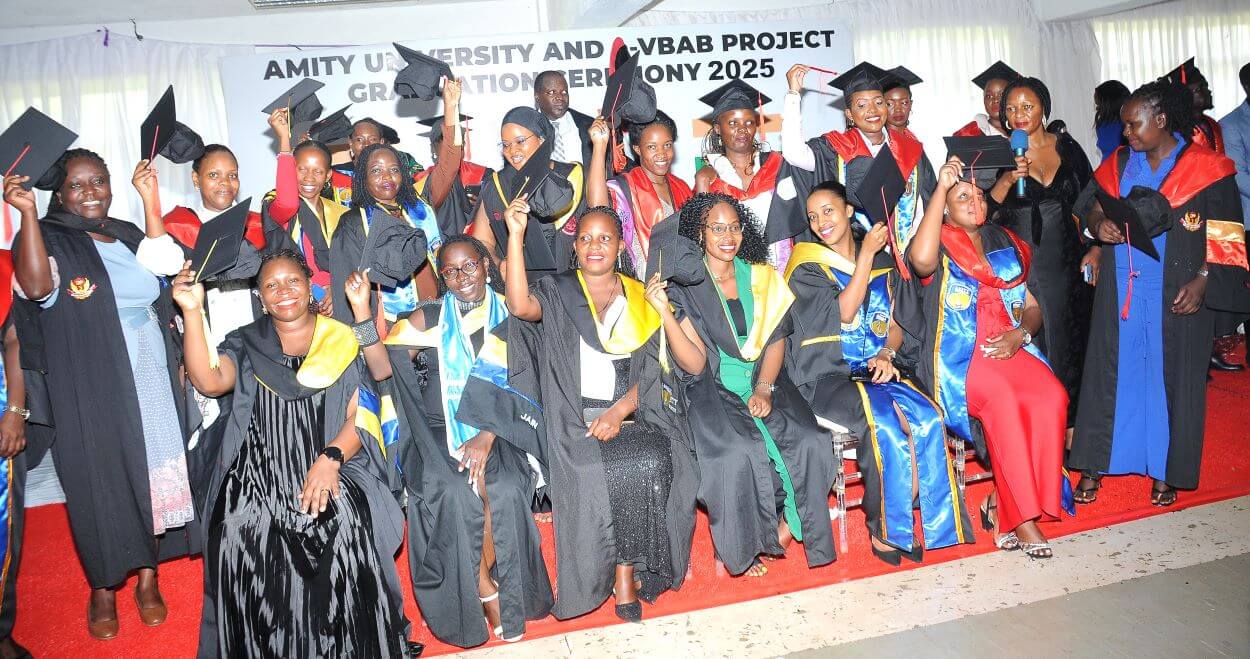
The Director’s message underscored the importance of teamwork, resilience, humility, and self-belief as graduates embark on their next chapter.
Graduates Laud Resilience, Faith and Global Support
Graduates under the e-VBAB Project and Amity University–Makerere collaboration celebrated perseverance, faith, and international partnerships as they addressed the audience during the) graduation ceremony.
Representing the e-VBAB project graduates, Isoke Gloria, a former student of Manipal Academy of Higher Education (MAHE), expressed gratitude for the milestone. “It’s not been easy, but we thank God so much for bringing us to this day. May His name be glorified,” she said. Gloria praised the scholarships provided under the project, noting, “We would never have made it here without their support. They’ve made our academic journey so easy and a success.” She also commended Makerere University and coordinator Barbara Nalubega for their encouragement and commitment.
Duncan Nagenda, an Amity University master’s student, highlighted the challenges of online learning, describing it as demanding and often unpredictable. “Online education is not a joke. If you ask me, it should be added on the list of a thousand ways to die,” he said, recalling internet disruptions and strict exam protocols. He acknowledged the support of lecturers in India, parents, and Makerere staff, particularly e-learning coordinator Claire. “To my class of 2025, may your future be filled with purpose, may your opportunities be abundant, and may your journey ahead be guided by excellence and wisdom,” he concluded.
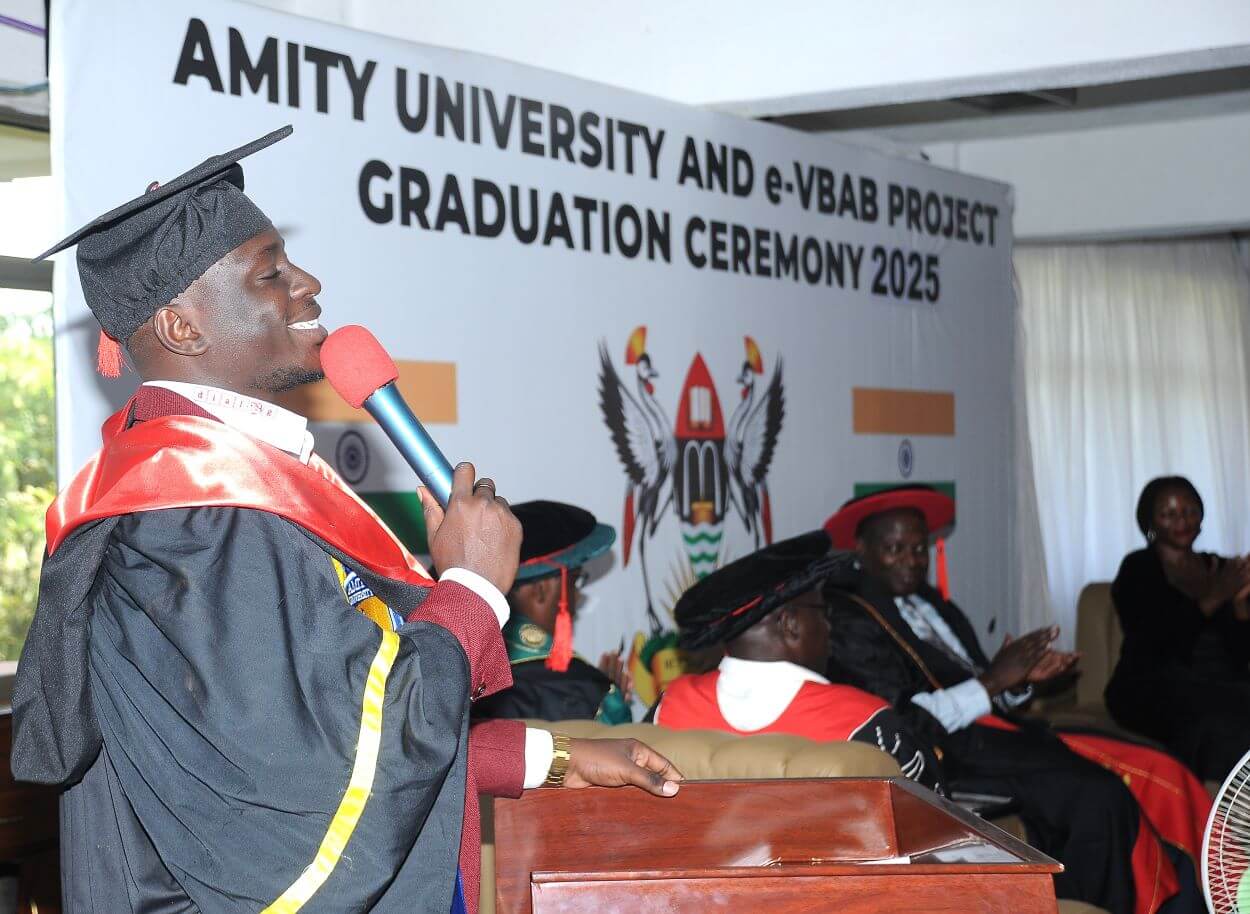
Duncan Nagenda speaking during the graduation ceremony
Joshua Mugabo, also from Amity University, emphasized faith and resilience. “Who would not have been here without God? It is His grace that carried us, His strength that sustained us, and His favor that opened doors we once feared were closed,” he said. Mugabo reflected on hardships such as blackouts, poor internet, and family responsibilities, but celebrated the resilience gained. “A degree might put something in our hand, but education puts something in your heart. And today’s world urgently needs what is in our hearts,” he added. He paid tribute to the Government of India, Makerere University, and mentors in Uganda and India, invoking Nelson Mandela’s words: “Education is the most powerful weapon you can use to change the world.”
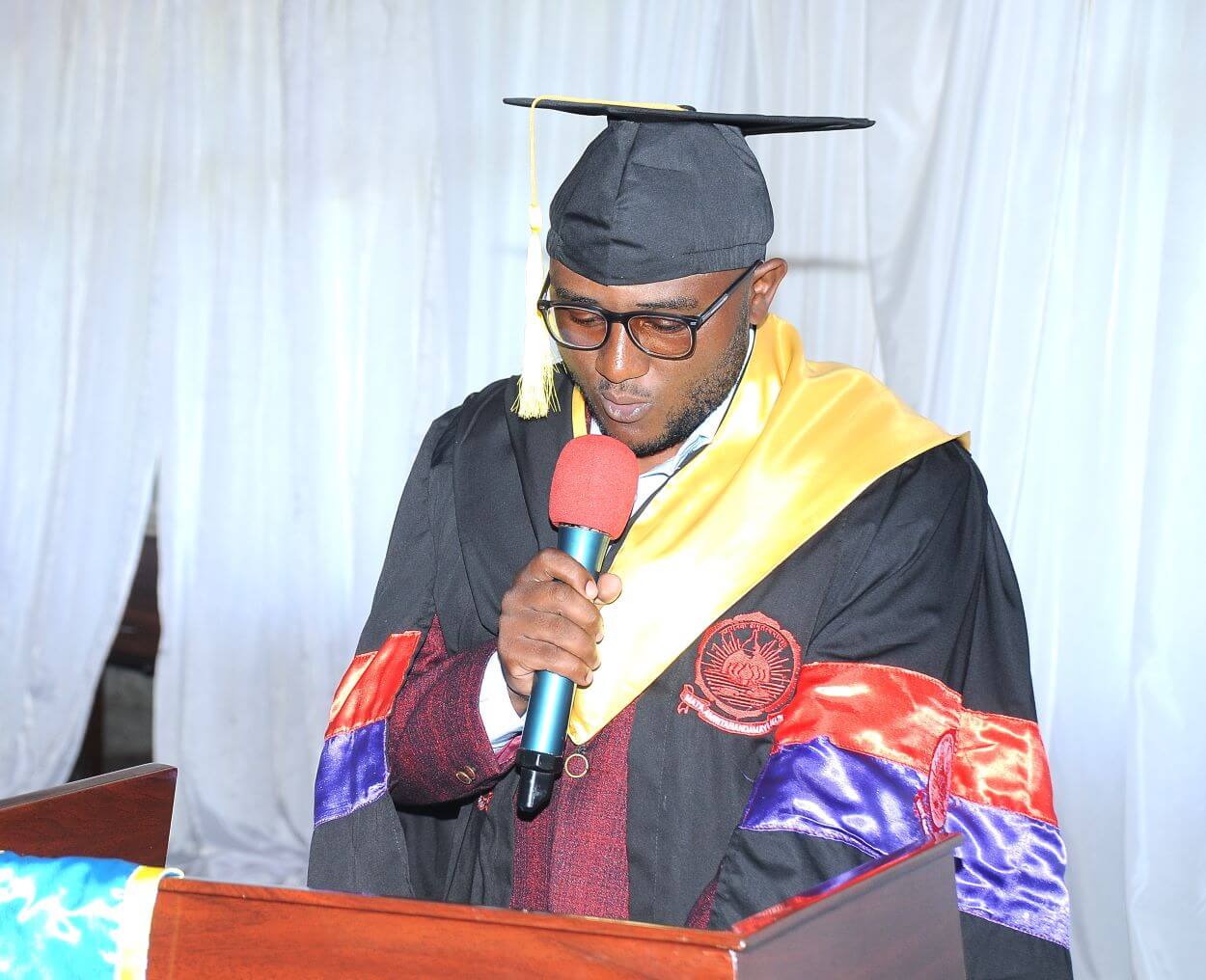
The graduates’ remarks underscored the significance of international collaboration, personal perseverance, and the transformative power of education, marking the ceremony not only as a celebration of academic achievement but also of resilience and shared vision for the future.
Find the details about this project and graduates in the booklet attached.
6th MUK Amity e-VBAB Graduation Handbook
By Jane Anyango
Principal Communication Officer CoCIS

